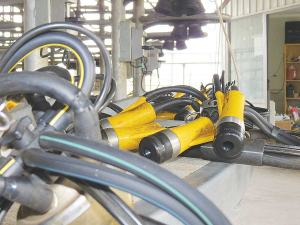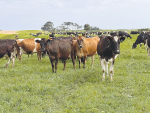Milk cooling affects milk quality. The quicker the milk is cooled after milking, the better the quality when it is collected from the farm.
Choosing the right cooling system for your farm means:
Lower energy costs
Milk cooling accounts for about 30% of the total energy costs of operating a dairy: energy demand and farm diary operating costs can be reduced using different options that involve heat recovery from your cooling system.
Less risk of penalties due to milk temperature
Raw milk grows bacteria rapidly above 7°C. Meeting the new milk cooling standards, which came into effect for all farms two years ago has meant changes on many farms.
The Ministry for Primary Industries New Zealand Code of Practice for the design and operation of Farm Dairies has new milk cooling standards.
The rules apply to:
Converted farms immediately
All farms from 1 June 2018
The rules state that raw milk must:
a) be cooled to 10°C or below within four hours of the commencement of milking; and
b) be cooled to 6°C or below within the sooner of:
i) six hours from the commencement of milking, or
ii) two hours from the completion of milking; and
c) be held at or below 6°C without freezing until collection or the next milking; and
d) must not exceed 10°C during subsequent milkings.
In situations where there is continuous or extended milking, such as automated milking systems, the milk must enter the bulk milk tank at 6°C or below.
“Continuous or extended milking” is defined as milking for six hours or longer from the time that milk first enters any bulk milk tank.
Farmers are still being urged to check the performance of their current milk cooling systems, including plate heat exchanger.
Other options
If your current plate heat exchanger and refrigeration unit combination are not capable of meeting the new milk cooling regulations you may need to consider a secondary cooling option.
These can involve a large capital outlay and long payback period but may come with the benefit of heat recovery, enabling you to save on hot water costs. Other options include:
• Cooling towers
• Ice banks
• Snap chillers
• Thermal stores
• Vat wraps


















